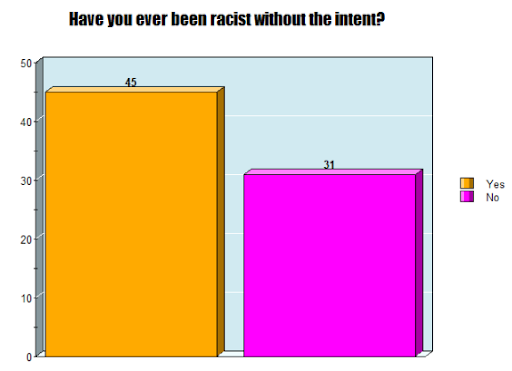After four months of working at my first job, I felt forced to quit because of the racist environment in which I was quickly drowning. Truthfully, I wasn’t surprised by this experience.
For years, racist sentiments have become so normalized within society that most people don’t notice it anymore. The normalization of this issue continues to be a detrimental factor to our colored youth.
At 10 years old, I ventured on my family’s annual summer vacation. I planned for the usual bathing suits, shorts, and sunscreen. What I did not account for was a string of mockery around my Korean name. Even more so, I was unaware that it would be coming from my own family’s disregarded prejudice.
At 14 years old, I was standing on the Wildwood, New Jersey boardwalk. Berated, I was called a chi*k a** by a 21 year old man who made explicit advances. I quickly learned protecting myself meant opening myself up to discriminatory hate.
At 16 years old, I was employed at a thrift store. I worked in linens, folding towels and sheets, pricing mountains of pillows. My supervisor appeared, holding up a pillow, she told me it had I love you stitched in Chinese. She asked if I was able to read it. I responded with “no, I’m Korean.” I wasn’t very surprised when I was met with, “shouldn’t you still know.” This was only one of several prejudiced comments that went unrecognized by staff.
Uwineza Mugabe, from the Queen’s University Journal says to understand unconscious bias, one needs to accept a basic fact: the systems we grow up in are inherently racist.
2023 is an era of greater understanding. A greater number of people are understanding that racism is bad and are being held accountable for past racist actions; people of color feel more empowered to speak out about the racism they have endured. As the minorities of our country continue to speak out, others may not be as supportive. It is easy to believe that racism is not normalized, but that younger generations are simply too ‘sensitive’ or people of color are focusing too deeply into the past.
When people of color, specifically the younger end of the spectrum, get told that they are too sensitive for “not understanding the joke,” it invalidates the severe affects racism can have on people’s physical and mental health. According to the CDC, racial and ethnic minority populations experience higher levels of poor health and disease across various conditions when compared with their White counterparts. The most common physical consequences include heart disease, low-grade inflammation, and a higher level of lower birth rates from pregnant women.
The mental effects can be just as lethal as the physical. Suicide rates have continued to increase in groups of minorities. Suicide rates have increased among Asian, Native Hawaiian or other Pacific Islander, and multiracial people were not deemed statistically significant, according to a study done by the Centers for Disease Control and Prevention.
Racism does not only happen within spaces of heavily white dominated groups. Even in spaces such as North Penn High School, where minorities make up 43% of the school, racism exists.
“I’ve experienced [racism] before, I felt embarrassed for being who I was and how I looked,” Mini Ramaswamy, senior at North Penn said
A mere comment, laced with unintentional malice can cause a whirlwind of misery.
“[Racist sentiments] make me upset, but I feel helpless to fight against it,” senior Laura Pham said.
How long must we continue to be dominated before change is insured? From being called slurs on the street, to angry looks and staredowns when simply parking next to someone else’s car, the normalized racism follows.
In a poll of North Penn students, they were asked if they have ever been racist without knowing/the intent. When asked, many kids struggled to answer. Rolling it over in their heads, over half concluded with the answer “probably, yeah” or “most likely.” Before finalizing their answer, most said they were unsure, hesitant to admit accidental fault. After finalizing their answer, no one could remember a specific time it happened, embarrassment washed over a few faces. The latter of the survey went the other way. Contrasting the first group, hardly anyone had to ponder this question, immediately answering no. with confidence in their answers, students swore they would know if they had been racist. The truth behind this question is that unrecognized microaggressions are everywhere.
“I don’t remember anything from early on and my parents taught me respect from a very young age,” concluded a white student.
Upon further surveying, it became evident that a common misconception was shared. Many people believed that if they were to simply “forget about it” or sweep any instances under the rug, it would be better than admitting to past faults. Ergo, continuing the harmful cycle of normalized racism.
“While I don’t remember any specifics, I cannot in full confidence say that I haven’t been [racist]. I think that people including myself can be so ignorant to things that are racist without even realizing. So many little things are racist and unless you are a person of color, you might not realize it so I can’t fully say that I’ve never been racist,” said Gianna Ciccone.
Though, not all explanations of survey answers displayed a misunderstanding of acceptance. To understand unconscious bias, the repeated systemic inequality needs to be looked at from the beginning.
The normalization of racism has been inflicting harm for years to people of color. It preserves a cycle of discrimination, negatively influencing mental and physical health, educational achievement, and overall potential. As a society, we can create a more equitable environment by addressing the ingrained norms and encouraging the success of all individuals regardless of their racial background.




Willa Magland • Dec 18, 2023 at 10:01 am
Thank you for this great piece, Susie, it shows the importance of addressing the racism in our school, the community, and ourselves. The personal experiences shared and the data and thoughts from students here were especially impactful. I’ll be looking forward to more articles from you